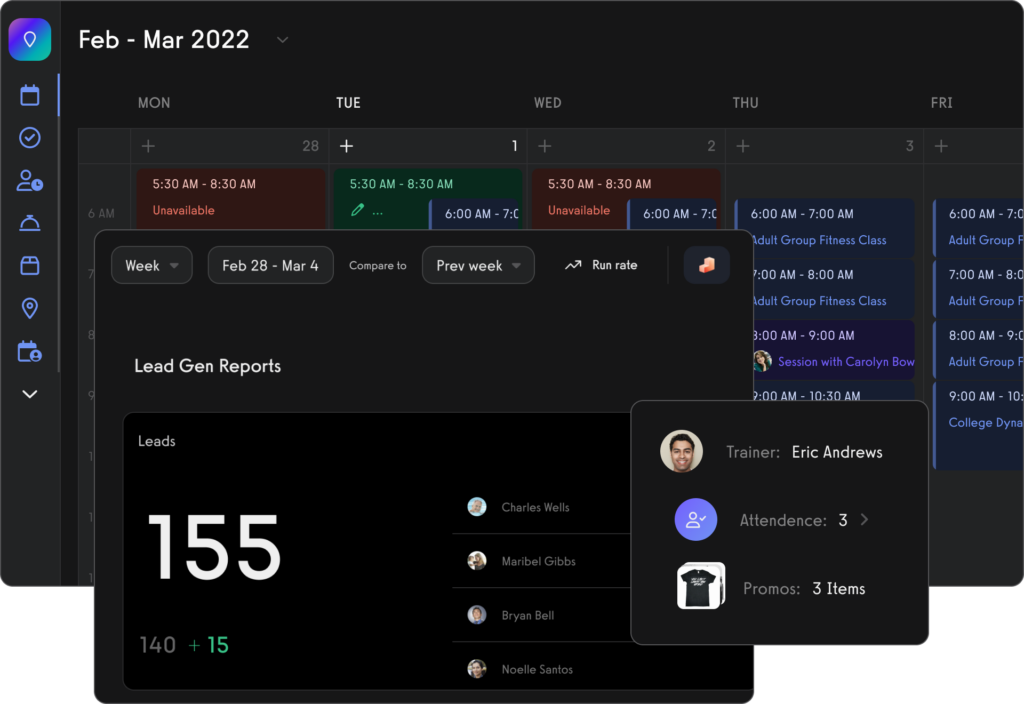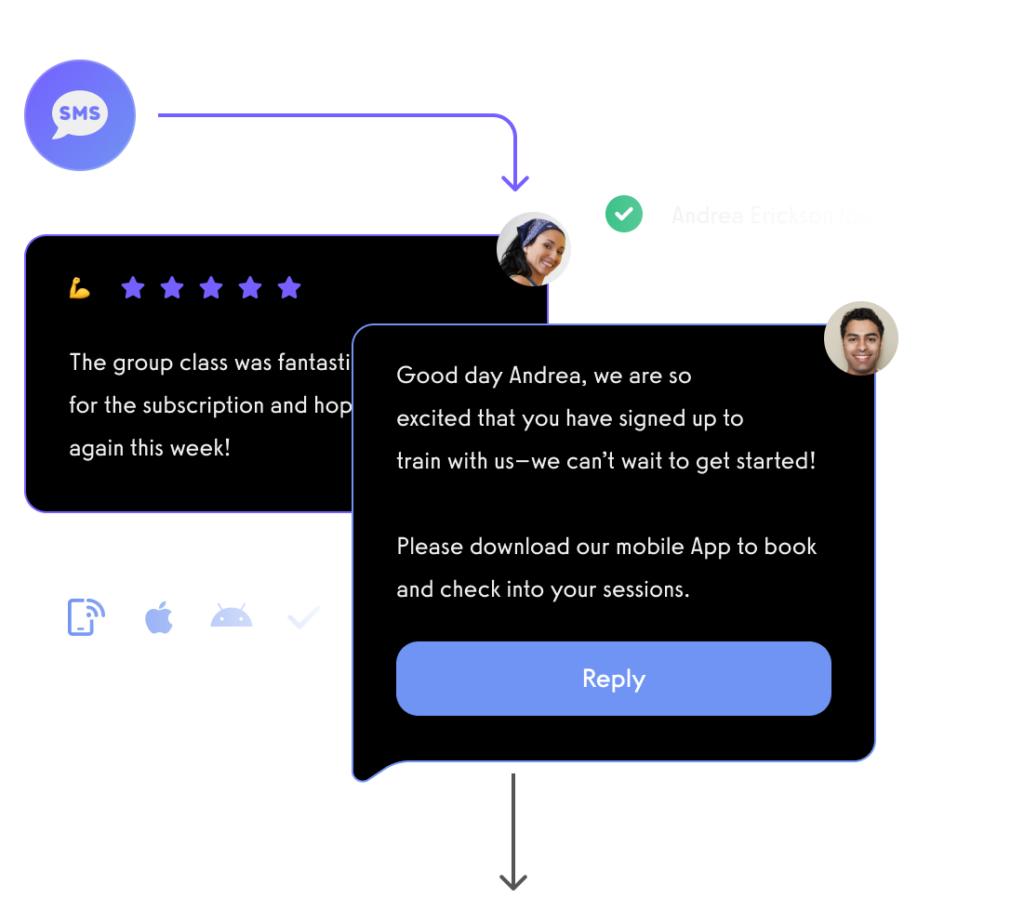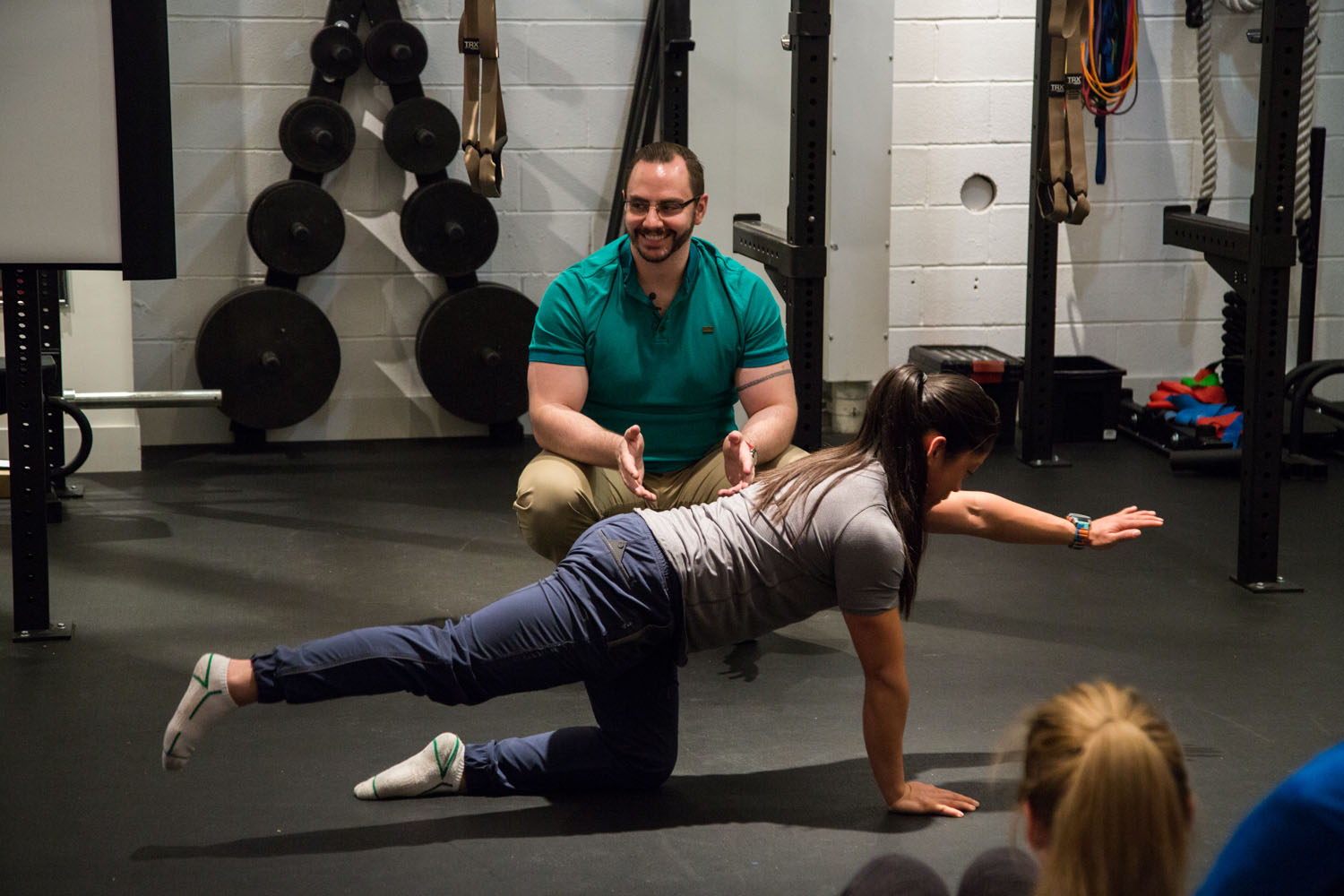Grants for Personal Trainers in 2025 (10 Options)
Learn how to find grants for personal trainers, tips for writing personal trainer grant proposals, and discover some little known methods for securing health and fitness business grants.

Read our free guide to finding personal trainer grants, explore different ways to find grants for personal trainer continuing education, and more.

As a personal trainer, you know the importance of staying updated with the latest trends, techniques, and research in the fitness industry. However, the cost of continuing education can sometimes be a barrier to your professional growth. That’s where grants for personal trainers come into play – they offer financial support to help you advance your personal training career.
Discover the top grants available for personal trainers to help fund their education, certification, and business ventures. Then be sure to check out the guide to grants for gyms and utilize the best personal training software system and the best gym management software system around to grow your personal training business or gym business and learn how to make money from fitness.
Manage your entire fitness business in one place.

Create workout plans with a workout plan creator.

Communicate with gym members, leads, and online followers via SMS, email, and in-app push notification.

All from your custom-branded fitness apps (read more about the best apps for personal trainers and the best personal trainer app builder software).

You can grow your business by selling workout plans, using our white label fitness app builder software to offer a custom branded fitness app, learning how to run an online fitness challenge, and much more.

List of Grants for Personal Trainers
Securing grants for a personal training business can provide valuable financial support to cover various costs such as equipment purchases, facility upgrades, and program development. While the availability of grants can vary depending on location, industry, and other factors, here are some general types of grants that personal trainers, fitness businesses, gyms, and fitness centers might consider:
- Small Business Administration (SBA) Grants: The SBA offers a variety of grant programs that can help fund small businesses, including gyms. The eligibility requirements can vary depending on the specific grant program.
- Community Development Block Grant (CDBG): Provided by the U.S. Department of Housing and Urban Development, this grant aims to help revitalize communities, provide decent housing, and create job opportunities, especially in low-income areas.
- Rural Business Development Grants (RBDG): If your gym is located in a rural area, you may qualify for this grant offered by the United States Department of Agriculture. It’s designed to support small businesses and improve the economic conditions in rural communities.
- Women’s Business Centers (WBCs) Grants: If your gym is women-owned or primarily serves women, the WBCs, facilitated by the SBA, could provide financial assistance.
- Economic Development Administration (EDA) Grants: The EDA offers grants aimed at supporting locally-driven economic development and growth initiatives.
- Physical Education Program (PEP) Grant: This program from the U.S. Department of Education provides funding to initiate, expand, or improve physical education programs, including after-school programs, for students in kindergarten through 12th grade.
- National Institutes of Health (NIH) Grants: NIH provides grants for projects that promote physical activity and address public health needs, which could potentially be applicable to certain gym programs.
- State and Local Government Grants: Be sure to research any grants available at the state and local level. These can often be found through your state or city’s economic development website.
- Corporate Grants: Some large corporations have grant programs as part of their social responsibility initiatives. These grants can range from community development grants to health and wellness grants.
- Non-profit Grants: There are numerous non-profit organizations that offer grants for health and fitness initiatives. For instance, the National Strength and Conditioning Association (NSCA) Foundation offers grants for projects that advance the strength and conditioning profession.
Applying for Personal Trainer Grants
Here is a table including each potential personal trainer grant mentioned and a link to find more information:
| Grant Name | Description | Link |
|---|---|---|
| Small Business Administration (SBA) Grants | Grants that help fund small businesses | SBA |
| Community Development Block Grant (CDBG) | Aims to help revitalize communities and create job opportunities | HUD |
| Rural Business Development Grants (RBDG) | Supports small businesses and improves economic conditions in rural communities | USDA |
| Women’s Business Centers (WBCs) Grants | Provides financial assistance for women-owned or primarily serving women businesses | SBA |
| Economic Development Administration (EDA) Grants | Supports locally-driven economic development and growth initiatives | EDA |
| Physical Education Program (PEP) Grant | Provides funding to initiate, expand, or improve physical education programs | US Dept of Education |
| National Institutes of Health (NIH) Grants | Provides grants for projects promoting physical activity and addressing public health needs | NIH |
| State and Local Government Grants | Grants available at the state and local level, these vary widely | Check your specific state or local government websites |
| Corporate Grants | Grants provided by large corporations as part of their social responsibility initiatives | These vary widely by corporation |
| Non-profit Grants | Non-profit organizations often offer grants for health and fitness initiatives | This varies widely by organization, one example is NSCA Foundation |
Please remember, the URLs provided are for general reference. The specific grant programs and eligibility criteria may vary, so it’s important to do detailed research based on your specific needs and circumstances.
Please note that grants are typically very competitive and have specific criteria that need to be met. It’s important to thoroughly research each grant opportunity, ensure your personal trainer business is eligible before applying, and follow the application process exactly as stated. In some cases, it may be beneficial to hire a professional grant writer to assist with the application process. Keep in mind that if you are not eligible for a personal trainer or gym grant, you may want to consider applying for a gym loan, especially if you have a comprehensive gym business plan with a professional gym budget and are prepared to open a new gym in a compelling gym target market.
Read More: Grants for Gyms
Understanding the Benefits of Grants for Personal Trainers
Grants can provide numerous benefits for personal trainers. Firstly, they offer financial assistance to cover the cost of certifications, workshops, conferences, and other educational opportunities. This not only allows you to expand your knowledge and skills but also enhances your credibility as a fitness professional.
Additionally, grants can help you gain access to specialized training programs that focus on niche markets or specific populations. By acquiring additional certifications in areas such as senior fitness, postnatal exercise, or sports performance training, you can cater to a wider audience and boost your client base.
Furthermore, grants can provide you with the necessary resources to invest in equipment, technology, or marketing strategies that can enhance your personal training business. Whether it’s purchasing new exercise gear or developing a website and social media presence, grants can offer the financial backing you need to take your business to the next level.
How to Find the Right Grants for Personal Trainers
When searching for grants, it’s essential to consider both federal and local opportunities. Start by exploring federal grant programs specifically tailored to personal trainers. For instance, entities like the Small Business Administration and the Department of Labor often offer grants to support the growth of small businesses, including personal training ventures.
Additionally, be sure to investigate state and local grant options. Many communities have programs that aim to promote health and fitness, which can include grants for personal trainers. Contact your local government or community organizations to inquire about potential funding opportunities.
Another avenue worth exploring is nonprofit organizations that focus on health and wellness. Many of these organizations offer grants to individuals and businesses in the fitness industry. Research and reach out to these nonprofits to learn more about their grant programs and application processes.
The Importance of Grants in Advancing Your Personal Training Career
Grants play a vital role in advancing your personal training career by providing you with the means to pursue further education and training. By acquiring additional certifications, you can position yourself as an expert in your field and attract more clients.
Furthermore, grants enable you to take advantage of emerging trends and technologies in the fitness industry. For example, with the increasing popularity of virtual coaching and online fitness programs, grants can help you invest in the necessary equipment and software to deliver high-quality remote training sessions.
Moreover, grants can also support diversity and inclusion in the fitness industry. Many grant programs focus on providing opportunities to underprivileged individuals or minority groups who aspire to become personal trainers. By encouraging diversity, grants contribute to a more inclusive fitness community.
Top Grant Opportunities for Personal Trainers in [current year]
Each year, various grant opportunities arise for personal trainers. Although the availability of grants may vary, it’s crucial to be aware of current opportunities. Conduct thorough research to locate grants that align with your specific needs and goals.
Keep an eye out for grants from organizations like the American Council on Exercise (ACE), National Academy of Sports Medicine (NASM), and International Sports Sciences Association (ISSA). These institutions often offer scholarships and grants to support personal trainers seeking advanced certifications or specialized education.
Furthermore, consider exploring grants from equipment manufacturers or technology companies that cater to the fitness industry. Many of these companies have grant programs aimed at fostering innovation and excellence in the field of personal training.
Exploring Federal Grant Programs for Personal Trainers
The federal government offers several grant programs that can benefit personal trainers. The Small Business Administration (SBA) provides resources and funding opportunities for small business owners, including personal trainers looking to establish or expand their businesses.
Department of Labor grants, such as the Workforce Innovation and Opportunity Act (WIOA) grants, support training programs aimed at helping individuals gain the skills needed for long-term employment. Personal trainers can take advantage of these programs by partnering with local organizations or workforce development boards to provide fitness training and education.
Furthermore, grants from the Department of Health and Human Services (HHS) can be beneficial for personal trainers involved in health promotion and wellness initiatives. These grants often focus on community-based programs that aim to improve health outcomes and reduce health disparities.
Navigating State and Local Grant Options for Personal Trainers
State and local governments often offer grant programs that support health and fitness initiatives. These programs can provide financial support for personal trainers seeking further education, equipment, or outreach opportunities.
To navigate state and local grant options, start by reaching out to your state’s department of health or department of education. These agencies typically have information on grant programs that support fitness-related projects.
Additionally, connect with local community organizations and fitness associations to stay informed about any available grants. Networking with fellow professionals in the fitness industry can also provide valuable insights and potential grant opportunities.
Eligibility Requirements for Grants in the Personal Training Industry
Eligibility requirements for grants in the personal training industry can vary depending on the grant program. Factors such as experience, education, credentials, and business structure may influence your eligibility for certain grants.
In many cases, grants prioritize applicants who demonstrate a clear plan for using the funds to advance their personal training careers or support fitness initiatives in their communities. It’s crucial to carefully review the eligibility criteria for each grant you’re interested in and ensure that you meet all the requirements before applying.
Tips and Tricks to Successfully Apply for Grants as a Personal Trainer
Applying for grants as a personal trainer can be a competitive process, but with strategic planning, you can enhance your chances of success. Here are some tips and tricks to consider:
1. Research thoroughly: Take the time to research available grant programs and understand their specific requirements and goals.
2. Craft a compelling proposal: Clearly articulate your goals, explain how the grant will help you achieve them, and provide a detailed plan for how you will utilize the funds.
3. Demonstrate impact and sustainability: Highlight the potential impact of your project or career advancement on the fitness industry, the community, or underrepresented populations. Also, showcase how you will sustain the positive outcomes beyond the grant period.
4. Gather supporting documents: Prepare any necessary documents, such as certifications, licenses, business plans, or letters of recommendation, to strengthen your application.
5. Follow instructions: Carefully adhere to the guidelines and submission instructions provided by the grant program. Failure to follow instructions could lead to disqualification.
Remember, perseverance is key. If your application is not successful on your first attempt, don’t be discouraged. Take the feedback provided, make improvements, and try again in the future with a different grant opportunity.
How Grants Can Help Fund Continuing Education for Personal Trainers
Continuing education is crucial for personal trainers to stay up-to-date with innovative training methods, scientific research, and industry developments. Grants can play a pivotal role in funding your ongoing education efforts.
By securing grants for continuing education, you can attend workshops, conferences, and seminars led by industry leaders. These educational opportunities will empower you to expand your knowledge base, learn new techniques, and acquire advanced certifications.
Additionally, grants can help cover the costs of online courses or specialized training programs, enabling you to delve deeper into areas of personal interest or develop expertise in specific niches of the fitness industry.
The Role of Grants in Expanding Your Personal Training Business
For personal trainers looking to expand their businesses, grants can offer a valuable source of funding. Grants can support various aspects of business growth, such as marketing, equipment acquisition, and facility improvements.
With a grant, you can invest in marketing strategies that help you reach a wider audience and attract new clients. This could involve developing a professional website, running targeted social media campaigns, or creating promotional materials.
Furthermore, grants can help you purchase new equipment or upgrade existing resources. By staying on the cutting edge of fitness technology, you can offer enhanced services and differentiate yourself from competitors.
Finally, grants can support facility improvements, whether it’s expanding your current space or transitioning into a larger and more modern facility. A well-equipped and visually appealing training environment can further elevate your reputation and client satisfaction.
Maximizing Your Chances of Securing a Grant as a Personal Trainer
While securing a grant as a personal trainer can be challenging, there are strategies you can employ to maximize your chances of success. Here are some key considerations:
1. Clearly define your goals: Develop a clear and concise plan for how the grant funds will be utilized to advance your personal training career or business.
2. Highlight your track record: Emphasize your past accomplishments, customer success stories, and community involvement to showcase your dedication and expertise.
3. Build strong relationships: Network with professionals in the fitness industry, potential grant funders, and relevant organizations to gain insights, support, and potential recommendations.
4. Tailor your applications: Customize your applications to each grant program and clearly articulate how your specific goals align with the grant’s objectives.
5. Seek feedback: If your application is rejected, request feedback from the grant program administrators. Their insights can help you refine and strengthen future applications.
Common Mistakes to Avoid When Applying for Grants as a Personal Trainer
When applying for grants as a personal trainer, it’s crucial to be aware of common mistakes that can hinder your chances of success. By avoiding these pitfalls, you can present a strong application that stands out to grant reviewers.
One common mistake is submitting a generic application without tailoring it to the specific grant program. Each grant has unique objectives and requirements, so it’s essential to customize your application accordingly.
Another mistake is failing to provide sufficient supporting evidence or documentation. Ensure you include all the necessary certifications, licenses, business plans, or letters of recommendation to bolster your application.
Finally, rushing the application process can lead to errors and oversights. Take the time to carefully review your application and ensure that you’ve followed all instructions accurately.
Understanding the Impact of Grants on Diversity and Inclusion in the Fitness Industry
Grants have a significant impact on promoting diversity and inclusion in the fitness industry. Many grant programs prioritize supporting underrepresented individuals or communities, helping to address inequalities and create equal opportunities.
By offering financial assistance to individuals from diverse backgrounds who aspire to become personal trainers, grants contribute to a more inclusive fitness profession. This diversity enriches the industry by bringing new perspectives, experiences, and expertise to the table.
Increasing diversity within the personal training field also helps to address the unique health and fitness needs of different populations. Grant-funded initiatives often target community-specific health issues, promoting access to quality fitness resources for all.
Exploring Nonprofit Organizations that Offer Grants to Personal Trainers
Nonprofit organizations play a crucial role in offering grants to personal trainers. These organizations are often dedicated to improving health and wellness, and they recognize the value of supporting fitness professionals through financial assistance.
Organizations like the National Council of YMCA’s and the American Heart Association offer grants to personal trainers who are committed to community-based fitness programs and initiatives. Their grants aim to support projects that enhance public health, prevent chronic diseases, and promote physical activity.
Additionally, corporate foundations associated with fitness brands, such as Nike, Reebok, or Under Armour, often have grant programs that support personal trainers who align with their mission and values.
Leveraging Technology: Grant Opportunities in Virtual Coaching and Online Fitness Programs
The rise of virtual coaching and online fitness programs has opened up new grant opportunities for personal trainers. With the COVID-19 pandemic accelerating the adoption of digital platforms, grants focused on technology and virtual fitness have become increasingly available.
Look out for grant programs specifically dedicated to advancing online fitness training, developing virtual coaching tools, or creating innovative platforms for remote fitness instruction. These grants can provide the necessary funding to invest in equipment, software, and marketing strategies that will help you succeed in the digital fitness space.
How to Create an Effective Grant Proposal as a Personal Trainer
Creating an effective grant proposal as a personal trainer requires careful planning and attention to detail. Here are some essential steps to take:
1. Research the grant: Thoroughly understand the grant program’s objectives, requirements, and evaluation criteria.
2. Clearly state your project or career goals: Begin your proposal with a concise and compelling introduction that clearly outlines what you aim to achieve through the grant.
3. Provide a detailed plan: Describe the specific activities, milestones, and resources required to achieve your goals. Be transparent about how the grant funds will be utilized.
4. Explain the anticipated impact: Highlight the potential positive outcomes and benefits of your project or career advancement, both for yourself and the fitness community.
5. Develop a realistic timeline: Outline a clear timeline that demonstrates your ability to effectively implement the proposed project or career development plan.
6. Include a budget: Break down the costs associated with your project, including how the grant funds will be allocated. Make sure your budget aligns with the goals and guidelines of the grant program.
7. Provide supporting evidence: Include any relevant certifications, licenses, testimonials, or letters of recommendation that reinforce your qualifications and commitment to excellence.
What types of fitness grants are available for personal trainers and gyms?
For personal trainers and gyms, various fitness grants are available to support their professional growth and business expansion. These include grants for fitness businesses, personal training grants, and fitness grants for nonprofits. Government grants for health and fitness, as well as physical fitness grants, can provide financial assistance for equipment purchases, facility upgrades, or community health initiatives. Additionally, grants for personal training certification can help aspiring trainers cover the costs of their education.
How can personal trainers and fitness businesses access grants for fitness?
Accessing grants for fitness requires research and understanding of the available opportunities. Personal trainers can look for health and fitness grants, specifically personal training grants, which are often offered by fitness organizations and educational institutions. Fitness businesses, including gyms, can explore grants for fitness centers or fitness center grants, which might be available through government programs or private foundations. Exercise.com can be a valuable resource in this process, offering business tools and insights that can strengthen grant applications.
Are there government grants available for the fitness industry?
Yes, there are government grants for the fitness industry that personal trainers and gym owners can apply for. Government grants for gyms, government grants for personal training courses, and government grants for fitness industry initiatives provide financial support for various aspects of fitness business operations. These grants can be used for starting new programs, purchasing equipment, or enhancing existing services. It’s important to regularly check government websites and fitness industry associations for the latest funding opportunities.
What funding options are available for personal trainers seeking certification?
For personal trainers seeking certification, several funding options are available. Scholarships for personal trainers and financial aid for personal training certification can help cover the costs of educational programs. Additionally, government funded personal training courses and government funded PT courses offer subsidized or free training options. Grants for exercise equipment and fitness equipment grants can also support trainers in setting up their practice. Leveraging platforms like Exercise.com can provide additional support in managing and growing a personal training business.










